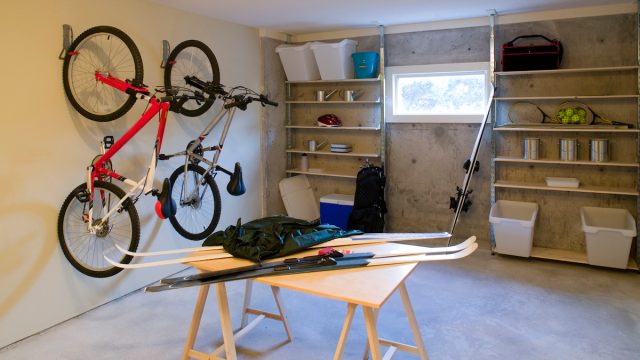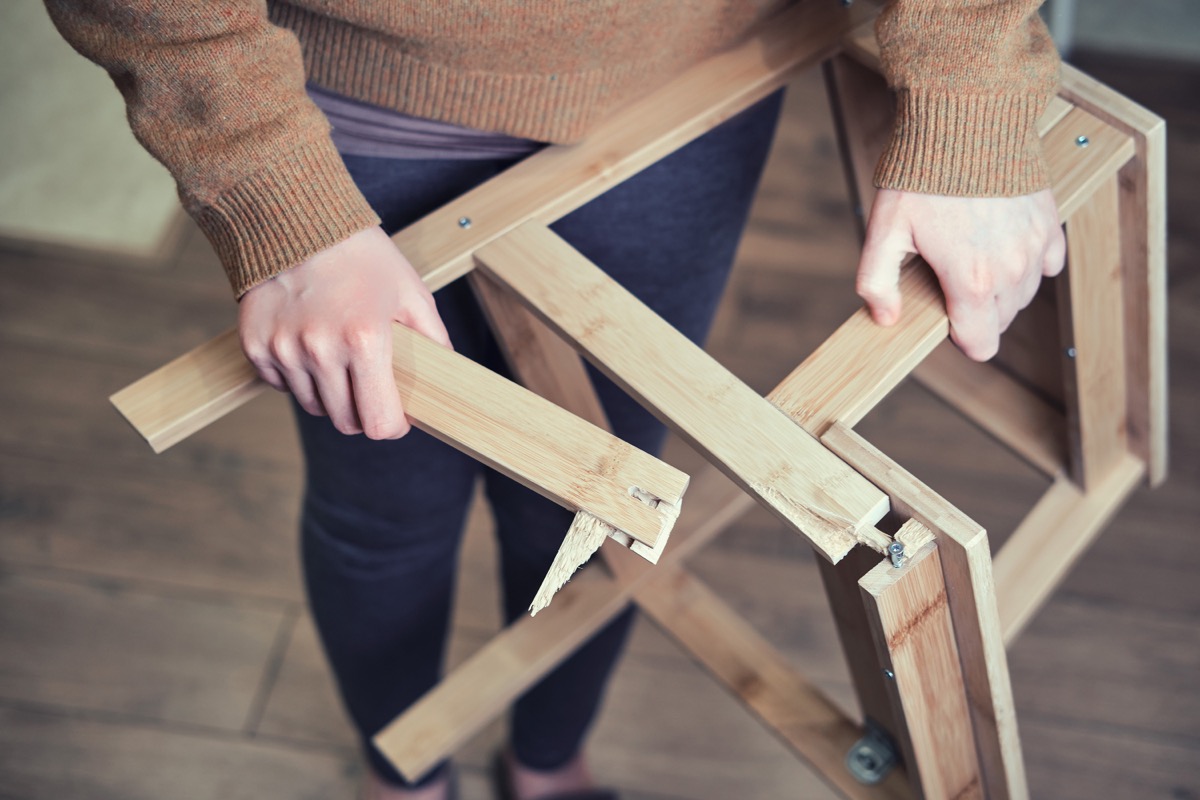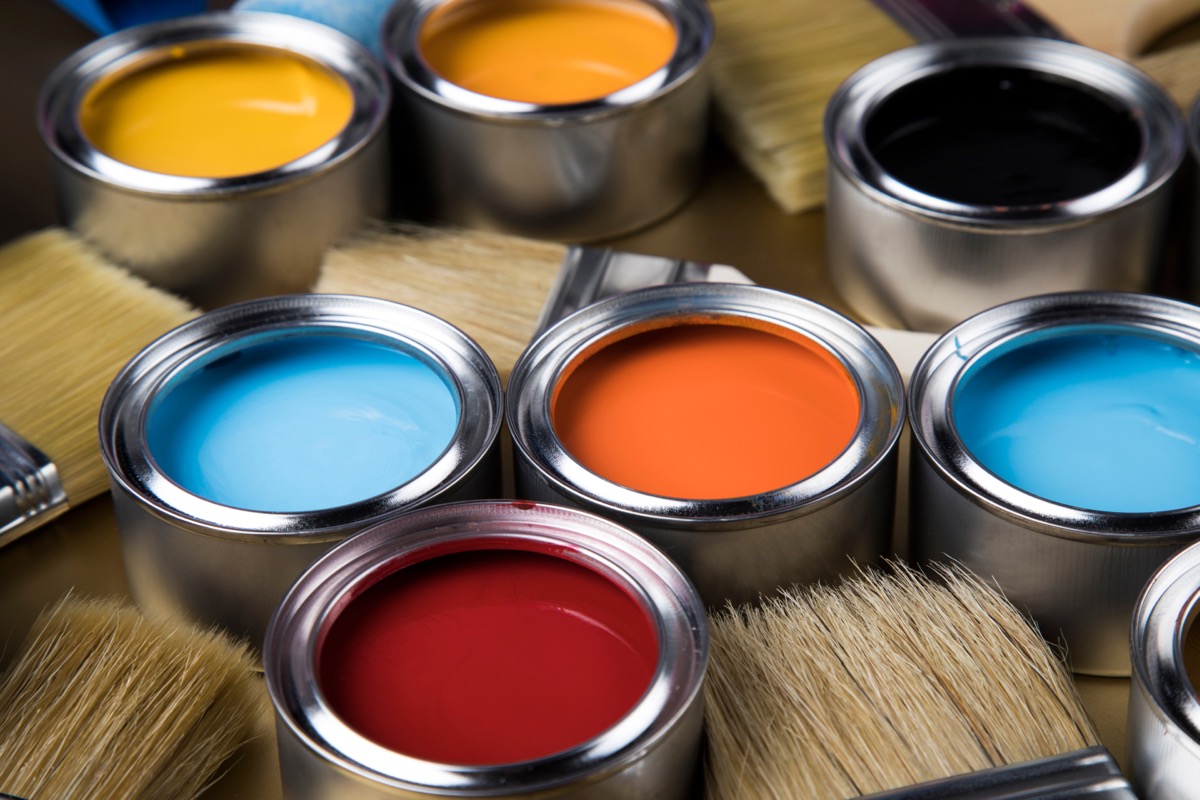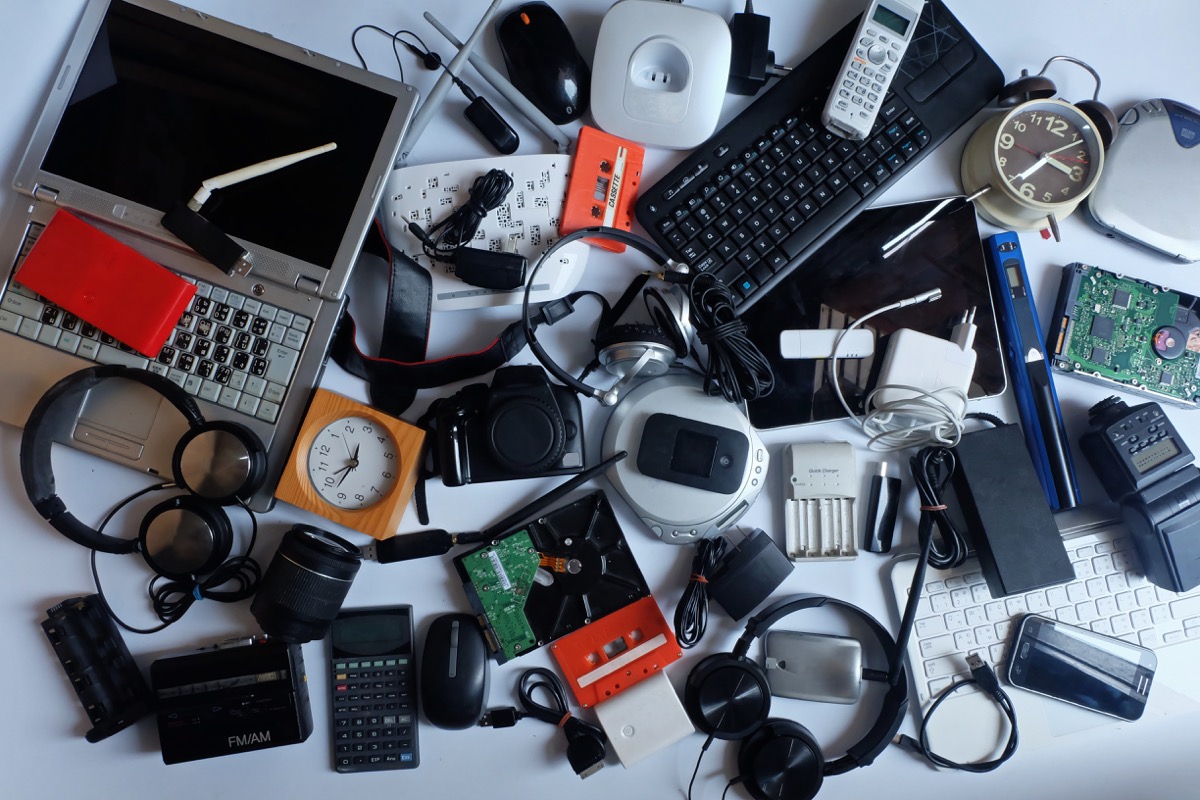6 Items You Should Never Store in Your Basement, According to Experts

One of the primary perks of homeownership is getting to toss everything you don’t know what to do with into your basement. From extra dog food to forgotten kid’s toys to antique refurbishing projects you swear you’ll get to one day, the bottom floor of the house is often filled to the brim with items you use sometimes but not often. (OK, and maybe a heavy dose of items you literally never use.) However, there are a few things that should never go down those stairs, either for safety or preservation reasons. Here, home experts tell us the key items you should never store in your basement. Plus, they offer advice on where to keep them instead.
READ THIS NEXT: 5 Items You Should Never Store in Your Pantry, According to Experts.
1
Wood

You likely have a few pieces of scrap wood leftover from your last home improvement project. However, the basement isn’t the place to store them, especially if the space is prone to moisture.
“Mold, a bacteria that thrives in moist environments, is prone to growing on organic materials such as wood,” says Glenn Wiseman, home repair and maintenance expert at Top Hat Home Comfort Services. “Therefore, a moist basement full of wood furniture may become the perfect breeding ground for a mold infestation.”
Instead, keep wood furniture or scraps in a well-ventilated and dry area of the home.
2
Family Photos

When left in the basement, family photos are susceptible to mold, flooding, and pests, which is why archivist and historian Angela L. Todd says you should never keep them there.
Todd says these items should be stored inside the house, in a place with a stable temperature and humidity. Further, keep them on a shelf above the floor and in a place that’s away from water sources such as windows, pipes, washing machines, plumbing, and more.
Breathable cardboard boxes are best. “Temperature and humidity invariably change, even in the best spot in the house,” says Todd. “Cardboard allows that, while plastic retains moisture and is a very attractive, protective home for pests.”
Check on your photos a few times a year to ensure they’re safe.
READ THIS NEXT: 6 Things Attracting Mice Into Your Basement.
3
Clothing

Clothing should also be stored outside of the basement, as should other porous materials or fabrics, such as upholstered furniture or paper documents.
“Basements are prone to higher humidity levels and potential water damage, which can lead to mold growth,” says Michael Golubev, CEO of Mold Busters. “Mold can easily infiltrate porous materials and cause irreversible damage while also posing health risks for the occupants.”
4
Artwork

Paintings and artwork, especially ones on canvas or paper, also fall into that category.
“The high humidity and potential for water damage in basements can cause artwork to warp, discolor, or develop mold,” says Golubev. “Instead, store artwork in a climate-controlled environment, such as an upstairs room, with consistent temperature and humidity levels to prevent damage.”
For more home advice delivered straight to your inbox, sign up for our daily newsletter.
5
Paint

Did you know that paint was flammable? That’s why you shouldn’t store it in your basement.
“As basements are not well-ventilated, these items can catch fire and engulf the entire house,” says Davin Eberhardt, home designer, remodeler, and founder of Nature of Home. The risk increases further if you keep the paint near your furnace.
6
Electronics

“Most electronics have delicate components that can’t withstand heat,” says George Beatty, founder of Problem Property Pals. “The basement can get quite hot if there’s no ventilation—then these components will be destroyed, and your appliance won’t be functional anymore.” That would be a bummer!